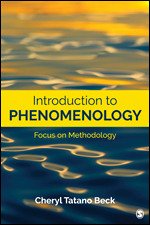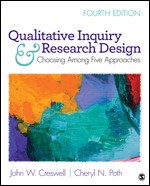Books about Phenomenological Research Design
by Janet Salmons, PhD., Research Community Manager for SAGE Methodspace
Research design is the SAGE Methodspace focus for the first quarter of 2023. Selecting the methodology is an essential piece of research design. A previous post introduced phenomenology and offered open-access examples from SAGE Journals. In this post you can find SAGE books that will help you learn more about this complex qualitative methodology. Sample chapters and online resources are highlighted. Use the code MSPACEQ123 for a 20% discount, valid until March 31, 2023.
Phenomenological Research
Introduction to Phenomenology: Focus on Methodology (2020)
by Cheryl Tatano Beck
This introductory book provides a clearer picture of phenomenology as method and its applications to social, behavioral, and health sciences, covering both interpretive and descriptive phenomenology from research design through analysis.
Find two sample chapters here.
Doing Hermeneutic Phenomenological Research: A Practical Guide (2020)
by Lesley Dibley, Suzanne Dickerson, Mel Duffy, Roxanne Vandermause
This practical guide offers an approachable introduction to doing hermeneutic phenomenological research across the health and social sciences. Grounded in real world research, it integrates philosophy, methodology and method in accessible ways, helping you realize the potential of using phenomenology to guide research.
Phenomenological Research Methods (1994)
by Clark Moustakas
In this foundational work, Clark Moustakas clearly discusses the theoretical underpinnings of phenomenology, based on the work of Husserl and others, and takes the reader step-by-step through the process of conducting a phenomenological study.
Geographies of Embodiment: Critical Phenomenology and the World of Strangers (2020)
by Kirsten Simonsen, Lasse Koefoed
Geographies of Embodiment provides a critical discussion of the literatures on the body and embodiment, and humanism and post-humanism, and develops arguments about “otherness” and “encounter” which have become key ideas in urban studies, and studies of the city. It situates these arguments in a wider political context, looking at power-relations through case studies at urban, national and transnational scales.
Interpretative Phenomenological Analysis: Theory, Method and Research, Second Edition (2020)
Jonathan A. Smith, Paul Flowers, Michael Larkin
Interpretative phenomenological analysis (IPA) is a qualitative research approach committed to the examination of how people make sense of their major life experiences. This text provides a detailed guide to conducting IPA research, presenting the theoretical underpinnings of the approach, a comprehensive overview of the stages of an IPA research project, and examples of high-quality IPA studies.
Find one sample chapter here.
Phenomenological Methodologies in General Qualitative Research Texts
Qualitative Inquiry and Research Design: Choosing Among Five Approaches, Fourth Edition
by John W. Creswell, Cheryl N. Poth
Creswell and Poth explore the philosophical underpinnings, history, and key elements of five qualitative inquiry approaches: narrative research, phenomenology, grounded theory, ethnography, and case study.
Find two sample chapters here.
Heuristic Inquiry: Researching Human Experience Holistically (2018)
by Nevine Sultan
Focused on exploring human experience from an integrative perspective, Heuristic Inquiry: Researching Human Experience Holistically presents heuristic inquiry as a unique phenomenologically aligned, experiential, and relational approach to qualitative research that is also rigorous and evidence based.
Find two sample chapters here.
Writing Dissertations using Phenomenological Research
How to Write a Phenomenological Dissertation (2020)
by Katarzyna Peoples
How to Write a Phenomenological Dissertation gives students practical, applied advice on how to structure and develop each chapter of the dissertation specifically for phenomenological research
Find three sample chapters here.













Qualitative data analysis varies by methodology. Learn about approaches for phenomenological studies through this collection of open access articles.